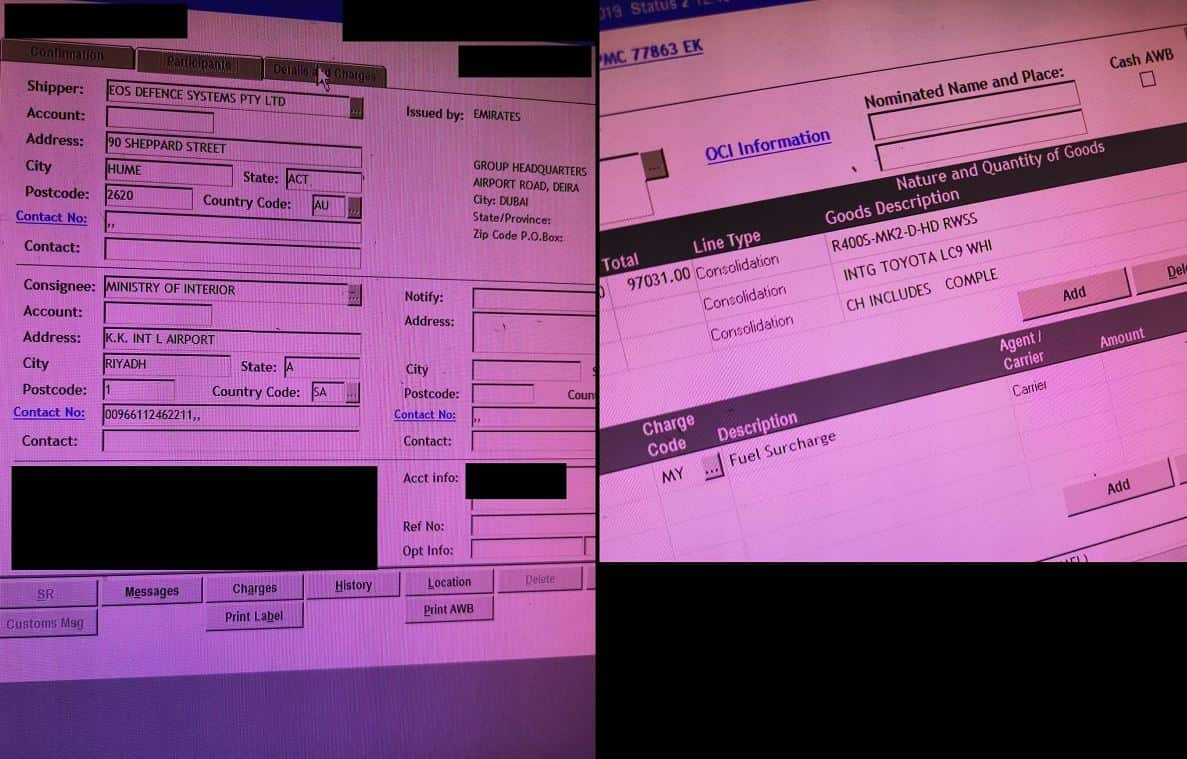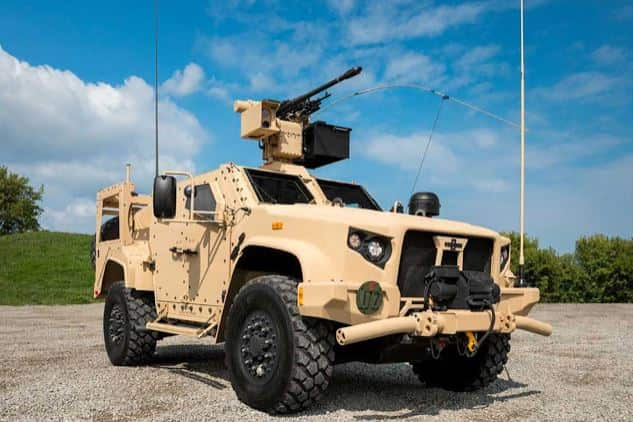At a gala dinner in Canberra last week, ndustry group Defence Connect awarded Electro Optic Systems (EOS) Defence Systems the prize for ‘defence export business of the year’.
On receiving the award EOS President Dr Warwick Holloway, said the award was recognition for, “intensive efforts of EOS staff and suppliers in rapidly expanding Australian production of defence products from $25 million in export value annually to $150 million in only two years.”
In the Australian Government’s haste to increase defence exports over the last two years, they failed to ensure that our export policies and processes comply with current international legal standards.
Companies like EOS have been allowed to export weapons systems and componentry to Saudi Arabia, breaching both the letter and the spirit of the Arms Trade Treaty that Australia helped negotiate and is obliged to uphold.
That treaty prohibits the transfer of conventional weapons to countries that are likely to use them to facilitate serious human rights violations at home or abroad.
Saudi Arabia stands accused of violating human rights in Yemen since it began military operations against Houthi forces in 2015.
Dateline has seen photos that appear to show crateloads of EOS weapons systems awaiting export from Sydney International airport to the Saudi Ministry of Interior last month.
This adds to photos published by the ABC in August, that allege EOS selling weapons to the UAE’s Armed forces.
Saudi Arabia has a poor track record with any assurances that they will remain the end user of any weapons they purchase. Recent reports found sale of European weapons ended up in the hands of the successor to Sudan’s genocidal Janjaweed militia on the border between Saudi Arabia and Yemen. American weapons have ended up in the hands of al-Qaeda affiliated groups.

The Arms Trade Treaty prohibits the sale of weapons if they could be used to commit or facilitate serious violations of human rights or humanitarian law. Saudi Arabia leads the coalition fighting the war in Yemen.
Last year, on average 100 civilians were killed or injured in the war each week. An estimated 4.3 million people have fled their homes since the start of the conflict. More than 14 million Yemenis need lifesaving humanitarian assistance. There are 12 million children who need some kind of humanitarian assistance.
The UN published a report by a group of eminent experts on the human rights situation last month. It outlines breaches of international human rights law and international humanitarian law by Saudi Arabia and other parties to the conflict in Yemen.

The report also urged countries like Australia to stop selling weapons to the parties to the conflict in Yemen given the "prevailing risk" they’d be used to commit or facilitate serious violations of international humanitarian and human rights law.
Melissa Parke, one of the authors of the UN report, stated: "No country can claim not to be aware of the violations being perpetrated in Yemen. To continue to provide weapons in the knowledge of such violations is both morally and legally hazardous".
The idea that judges from across Australia’s defence industry selected EOS as ‘defence export business of the year’ has troubled human rights advocates. The CEO of Save the Children Australia, Paul Ronalds said, “I’m sure most Australians would be deeply troubled to learn that Australia is celebrating businesses making weapons which may be fuelling the world’s worst humanitarian crisis.”
Both EOS and Defence Connect did not respond to requests for comment by the time of publication.
Susan Hutchinson is a freelance contributor to Dateline. She has served in the Army, worked for the Department of Defence and non-government organisations. Susan is now undertaking a PhD at the Australian National University on how militaries implement the Security Council Resolutions on Women, Peace and Security. She is also a member of the Australian Civil Society Coalition on Women, Peace and Security.
Dateline is an award-winning Australian, international documentary series airing for over 40 years. Each week Dateline scours the globe to bring you a world of daring stories. Read more about Dateline
Have a story or comment? Contact Us


